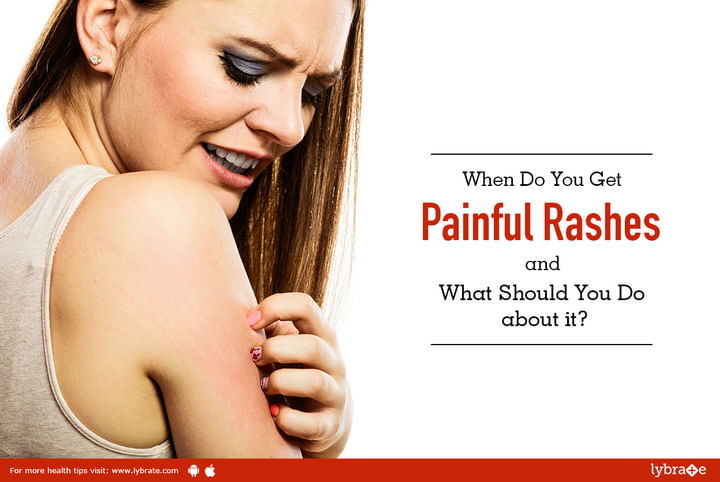When Do You Get Painful Rashes and What Should You Do about it?
The most common reason for the occurrence of painful rashes is a condition of the skin known as shingles. It is caused by the varicella-zoster virus, which is also responsible for causing chicken pox. Shingles, also known as herpes zoster, manifests itself as painful rashes that occur on the skin in the form of a band, a strip or a patch and can even develop into blisters.
What causes this condition to occur?
Once it enters the system, the varicella zoster virus remains dormant in the nerve roots until it is activated. The exact trigger varies from a weakened immune system to nervous inflammation.
The virus spreads from one person to another through aerial transmission or direct contact with the contaminated fluids that are formed inside the rashes and blisters. Any person who has suffered from chickenpox in the past is more prone to this condition. Although shingles is more common in older adults, it also affects children who have not had chickenpox before, as their immune systems are still in the developmental stage and are not effective in providing protection against the virus.
How to alleviate the problem?
There are simple ways of dealing with the problem of shingles for easing the symptoms and reducing pain.
Some of them are as follows:
- The rashes and blisters should not be scratched or picked at.
- Cornstarch or baking soda can be applied to the affected areas to reduce pain.
- Moist and wet compresses can also be used for relieving soreness.
- Anti-inflammatory creams and lotions can be applied for soothing the skin.
In case of severe infection or inflammation, consult a healthcare specialist right away for diagnosis and prescription of antibiotic medication for treating the condition.
How to prevent the virus from spreading?
Once affected, it is important to keep the virus from infecting another person. It requires avoiding contact with those who are at a higher risk of contracting the virus, such as:
- Children who have never had chickenpox
- Pregnant women
- A person who is currently ill
- People with chronic weak immune systems
'Consult'.
Tip: Your Pain is Chronic if it Falls Under These 4 Types of Chronic Pain Disorders!



+1.svg)
